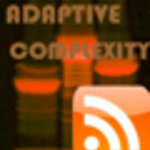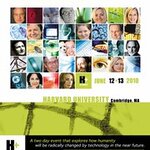
Our 1950 pick is L. Sprague de Camp and P. Schuyler Miller's Genus Homo, a pulp adventure that takes place a million years in the future after after the genus Homo has destroyed itself, leaving the field wide open for other ape species to evolve higher intelligence, science, and technological war. Although Genus Homo was first published in book form in 1950, it was written for the pulp magazine Super Science Stories in 1941, and thus it really counts as a pre-Hiroshima novel. Nevertheless the book makes a clear reference to the possibility of humanity’s destruction by nuclear bombs, putting…



